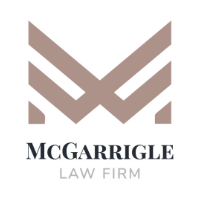Parkesburg White Collar Crime Lawyer, Pennsylvania
Sponsored Law Firm
-
 x
x

Click For More Info:
-
Ciccarelli Law Offices
Numerous Office Locations Available» view mapCriminal Defense Success Is Our Mission
You gain the resources of a Team with 100 years of combined experience fighting for their clients throughout Pennsylvania.
888-240-0896
Daniel McGarrigle
✓ VERIFIEDMilitary & Veterans Appeals, White Collar Crime, DUI-DWI, Criminal
Attorney Daniel McGarrigle is an aggressive advocate and experienced litigator; he has tried hundreds of cases and handled all types of criminal matte... (more)
FREE CONSULTATION
CONTACTFREE CONSULTATION
CONTACTHarry W. Fenton
Lawsuit & Dispute, Divorce & Family Law, White Collar Crime, Criminal
Status: In Good Standing
Joseph Peter Mcmahon
Lawsuit & Dispute, White Collar Crime, Criminal, Wrongful Death
Status: In Good Standing Licensed: 19 Years
Anthony John Damiano
Grand Jury Proceedings, Internet, White Collar Crime
Status: In Good Standing Licensed: 10 Years
Heather Jo Mattes
Federal Claims Court, Divorce & Family Law, White Collar Crime, Criminal
Status: In Good Standing
Edward John King
Real Estate, Pharmaceutical Product, Divorce & Family Law, White Collar Crime
Status: In Good Standing Licensed: 51 Years
Terence Patrick Ruf
Litigation, White Collar Crime, Consumer Protection, Business
Status: In Good Standing Licensed: 18 Years
 Lee Ciccarelli West Chester, PA
Lee Ciccarelli West Chester, PA AboutCiccarelli Law Offices
AboutCiccarelli Law Offices Practice AreasSpecializations
Practice AreasSpecializations

